2129 - Reproductive Loss Leave (Historical View)
** Effective: 1/2/2024 3:34:54 PM - 2/12/2024 3:20:35 PM **Status: Active
Change Notes
Policy Created.
Category
Leave
Audience List
- Labor Relations Officers
- Personnel Officers
- Personnel Transactions Supervisors
Synopsis
This policy:
- Describes the entitlement of reproductive loss leave for represented and excluded employees following a reproductive loss event.
Introduction
Reproductive loss leave is granted to eligible employees following a reproductive loss event. A reproductive loss event means the day or, for a multiple-day event, the final day of a failed adoption, failed surrogacy, miscarriage, stillbirth, or an unsuccessful assisted reproduction.
Statement
Reproductive loss leave is used following a reproductive loss event, which includes a failed adoption, failed surrogacy, miscarriage, stillbirth, and unsuccessful assisted reproduction. Reproductive loss leave days need not be consecutive but shall be taken pursuant to applicable laws, regulations, and policy, unless stated otherwise in a Memoranda of Understanding (MOU).
Effective January 1, 2024, Senate Bill 848 (Chapter 724, Statutes 2023) added section 12945.6 to the Government Code. Pursuant to this section, all state employees who have been employed for at least 30 days, are entitled up to a maximum of five days of reproductive loss leave for a reproductive loss event, as defined below:
- “Failed adoption” means the dissolution or breach of an adoption agreement with the birth mother or legal guardian, or an adoption that is not finalized because it is contested by another party. This event applies to a person who would have been a parent of the adoptee if the adoption had been completed.
- “Failed surrogacy” means the dissolution or breach of a surrogacy agreement, or a failed embryo transfer to the surrogate. This event applies to a person who would have been a parent of a child born as a result of the surrogacy.
- “Miscarriage” means a miscarriage by a person, by the person’s current spouse or domestic partner, or by another individual if the person would have been a parent of a child born as a result of the pregnancy.
- “Stillbirth” means a stillbirth resulting from a person’s pregnancy, the pregnancy of a person’s current spouse or domestic partner, or another individual, if the person would have been a parent of a child born as a result of the pregnancy that ended in stillbirth.
- “Unsuccessful assisted reproduction” means an unsuccessful round of intrauterine insemination or of an assisted reproductive technology procedure. This event applies to a person, the person’s current spouse or domestic partner, or another individual, if the person would have been a parent of a child born as a result of the pregnancy.
Leave under this statute is unpaid, unless there is an existing policy that requires paid leave. For example, an employee may be eligible for paid bereavement leave in the instance of a stillbirth. In other instances, an employee may use vacation/annual leave, personal leave, accrued and available sick leave, or compensatory time off that is otherwise available to the employee. Reproductive loss leave does not need to be taken on consecutive days but must be completed within three months of the date of the event. If prior to or immediately following a reproductive loss event, an employee takes Pregnancy Disability Leave or California Family Rights Act/Family Medical Leave Act leave, or any other leave entitlement under state or federal law, the employee shall complete their reproductive loss leave within three months after the end of their other leave. If an employee experiences more than one reproductive loss event within a 12-month period, reproductive loss leave time is limited to a total of 20 days within a 12-month period. Consistent with other CFRA qualifying events, the 12-month period is based on a calendar year, January through December.
Reproductive loss leave is a separate and distinct right from any other right under the California Fair Employment and Housing Act and the Family Medical Leave Act.
Employers must maintain the confidentiality of any employee requesting reproductive loss leave.
Unlawful Acts
It is an unlawful employment practice for any employer to interfere with, restrain, or deny the exercise of, or the attempt to exercise, any right provided under Government Code section 12945.6, regardless of dock status. This means an employee who is on dock will be eligible to use leave credits, if available, under this protected leave.
It is also unlawful for an employer to retaliate against an individual, including, but not limited to, refusing to hire, discharging, demoting, fining, suspending, expelling, or discriminating against, an individual because of either:
- An individual exercising their right to take reproductive loss leave.
- An individual giving testimony as to reproductive loss leave.
Application
Not Applicable.
Authorities
- Bargaining Contracts - MOUs
- Government Code section 12945
- Government Code section 12945.2
- Government Code section 12945.6
- Senate Bill 848
Resources
Related Policies
- 2115 - Bereavement Leave: Bereavement Leave
Authorized By
Melissa Russell
Chief,
Personnel Management Division
Contact Person
Personnel Services Branch
Personnel Program Consultant,
, Personnel Services Branch
Phone: 916-323-3343
Fax: 916-327-1886
Email: psb@calhr.ca.gov
